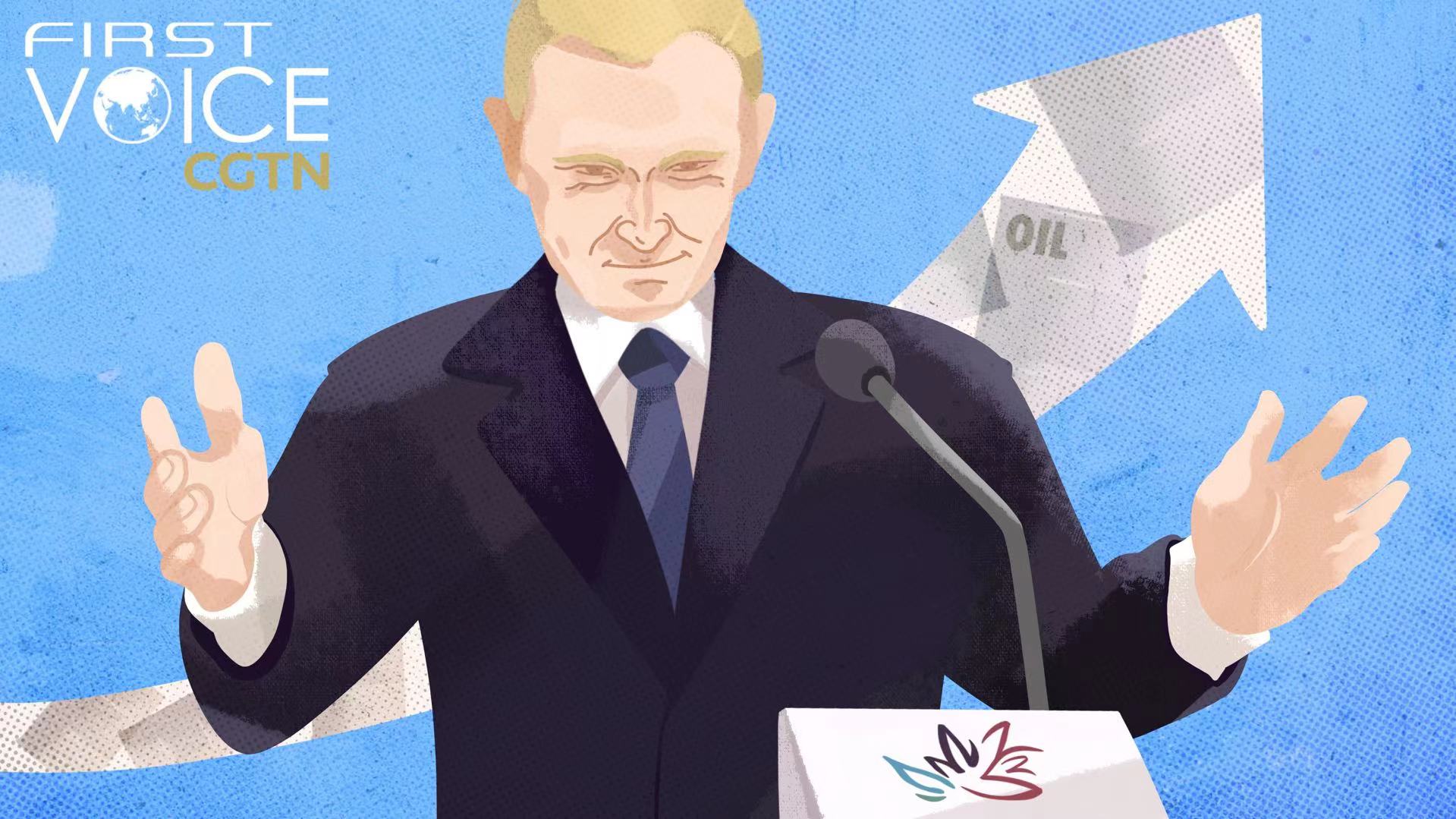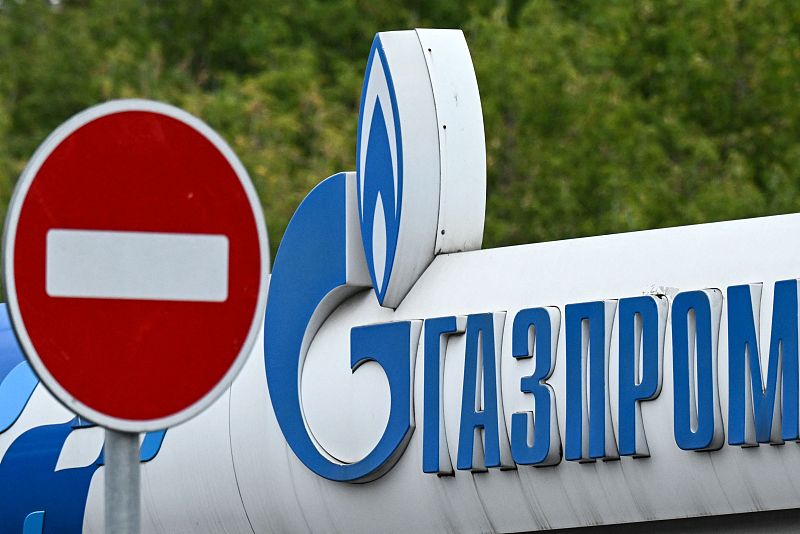
Editor's note: CGTN's First Voice provides instant commentary on breaking stories. The daily column clarifies emerging issues and better defines the news agenda, offering a Chinese perspective on the latest global events.
Russian President Vladimir Putin delivered a powerful speech this week at the Eastern Economic Forum. He highlighted how the Russian economy remains stable, even though the Western powers have imposed stiff sanctions against Moscow. Meanwhile, the Russian oil and gas sector is booming with high prices, as well as shifting more energy deliveries to the Asia and Middle East markets. Putin also raised concerns over the belligerent aims of U.S. foreign policy.
The Western powers led by Brussels, London and Washington have been seized by "sanctions fever," hoping to crush the Russian spirit while Moscow has been involved with its "special military operations" in Ukraine since February 24. The West has blocked imports of microchips into Russia, barred international bank transfers via the SWIFT system, and has tightened restrictions on Russian exports of food and energy products.
Despite being isolated, Putin announced that Russia's annual GDP is forecast to drop only by two percent by the end of the year, while the central government's budget is on pace to hit a record-setting surplus.
"We have not lost anything and will not lose anything," said Putin. "Everything that is unnecessary, harmful and everything that prevents us from moving forward will be rejected."
"In terms of what we have gained, I can say that the main gain has been the strengthening of our sovereignty, and this is the inevitable result of what is happening now," Putin added. "This will ultimately strengthen our country from within."
Does it herald the emergence of a multi-polar new age, and the coming end of the present-day uni-polar global order dominated by Washington?
Russia eyes a rising Asia
The Eastern Economic Forum is being held in Vladivostok, located on Russia's southeastern seaboard, serving as a cross-border trading hub for the nation's Siberian region that is rich in natural resources, particularly in oil, gas, coal, minerals, metals, timber and seafood.
China, the world's second-largest economy and bordering Vladivostok, has a large manufacturing base that requires a massive influx of natural resources to sustain the supply chains of its factories, warehouses and logistics services companies.

A logo of Russia's energy giant Gazprom at a petrol station in Moscow, Russia, September 1, 2022. /CFP
A logo of Russia's energy giant Gazprom at a petrol station in Moscow, Russia, September 1, 2022. /CFP
According to media reports, on Tuesday, China's state-owned energy company China National Petroleum Corporation (CNPC) announced a joint agreement to build a natural gas pipeline with Russia's state-run energy giant Gazprom that will run from Siberia to northeastern China. The Russian gas payments by China will go 50/50 rubles and yuan while foregoing the U.S. dollar, TASS reported Gazprom as saying in a press release.
Additionally, the nations in South and Southeast Asia are eager to pursue more expansive industrialization, urbanization and modernization drives.
As such, Russia's bounty of natural resources can complement Asian economies. Many Asian countries are acting more pragmatic in regards to opposing sanctions on Russia as they prefer a more neutral stance over the Russia-Ukraine conflict. They see little to gain by inflicting self-harm on their respective economies just so they can please the U.S., United Kingdom and European Union.
Europe takes a pounding at Washington's behest
Ordinary Europeans are suffering heavily during the Russia-Ukraine conflict. An economic forecast the European Commission released in July projected that the EU economy will grow by 2.7 percent in 2022 and 1.5 percent in 2023, with record-high inflation to peak later this year. The European governments can continue to blindly follow Washington's demands to support Kyiv, but at what costs?
German Foreign Minister Annalena Baerbock is quoted as saying, "yes, our citizens are suffering, but they will have to suffer because we will support Ukraine no matter what."
Since the European Coal and Steel Community was set up some 70 years ago, seeking European strategic autonomy has long been in the bloc leaders' blood.
Apparently, European politicians of this generation put their people's livelihood aside while following Washington's suit. Yet Russia will still prevail as an independent sovereign state in the years to come.
(If you want to contribute and have specific expertise, please contact us at opinions@cgtn.com. Follow @thouse_opinions on Twitter to discover the latest commentaries in the CGTN Opinion Section.)

